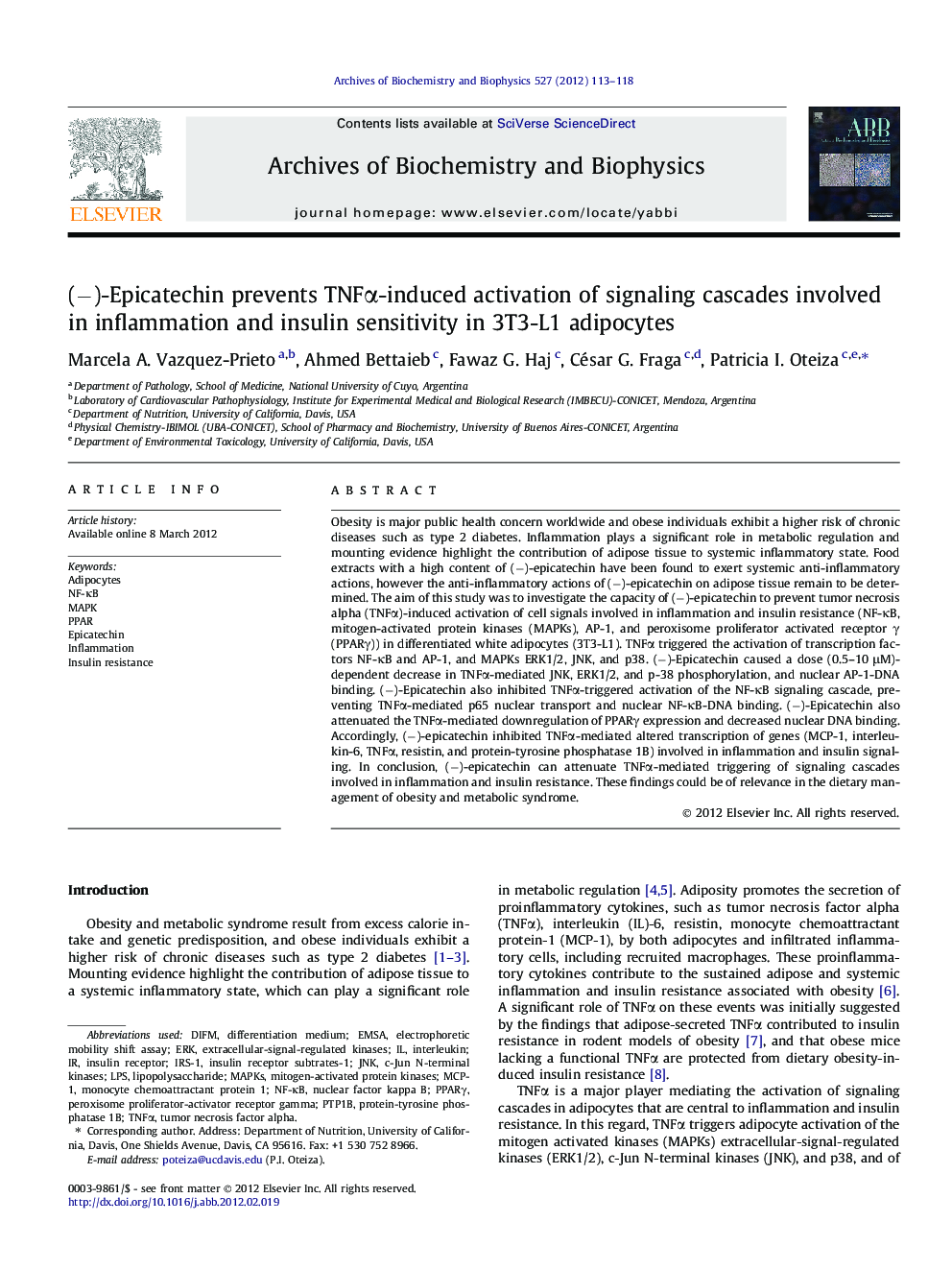| Article ID | Journal | Published Year | Pages | File Type |
|---|---|---|---|---|
| 1925461 | Archives of Biochemistry and Biophysics | 2012 | 6 Pages |
Obesity is major public health concern worldwide and obese individuals exhibit a higher risk of chronic diseases such as type 2 diabetes. Inflammation plays a significant role in metabolic regulation and mounting evidence highlight the contribution of adipose tissue to systemic inflammatory state. Food extracts with a high content of (−)-epicatechin have been found to exert systemic anti-inflammatory actions, however the anti-inflammatory actions of (−)-epicatechin on adipose tissue remain to be determined. The aim of this study was to investigate the capacity of (−)-epicatechin to prevent tumor necrosis alpha (TNFα)-induced activation of cell signals involved in inflammation and insulin resistance (NF-κB, mitogen-activated protein kinases (MAPKs), AP-1, and peroxisome proliferator activated receptor γ (PPARγ)) in differentiated white adipocytes (3T3-L1). TNFα triggered the activation of transcription factors NF-κB and AP-1, and MAPKs ERK1/2, JNK, and p38. (−)-Epicatechin caused a dose (0.5–10 μM)-dependent decrease in TNFα-mediated JNK, ERK1/2, and p-38 phosphorylation, and nuclear AP-1-DNA binding. (−)-Epicatechin also inhibited TNFα-triggered activation of the NF-κB signaling cascade, preventing TNFα-mediated p65 nuclear transport and nuclear NF-κB-DNA binding. (−)-Epicatechin also attenuated the TNFα-mediated downregulation of PPARγ expression and decreased nuclear DNA binding. Accordingly, (−)-epicatechin inhibited TNFα-mediated altered transcription of genes (MCP-1, interleukin-6, TNFα, resistin, and protein-tyrosine phosphatase 1B) involved in inflammation and insulin signaling. In conclusion, (−)-epicatechin can attenuate TNFα-mediated triggering of signaling cascades involved in inflammation and insulin resistance. These findings could be of relevance in the dietary management of obesity and metabolic syndrome.
► (−)-Epicatechin (EC) inhibits TNFα-triggered inflammatory response in adipocytes. ► MAPK, NF-κB, and AP-1 inhibition associates with reduced pro-inflammatory gene transcription. ► In parallel, EC prevents PPARγ downregulation, central to energy metabolism. ► In conclusion, EC could provide benefits against obesity-associated inflammation.
